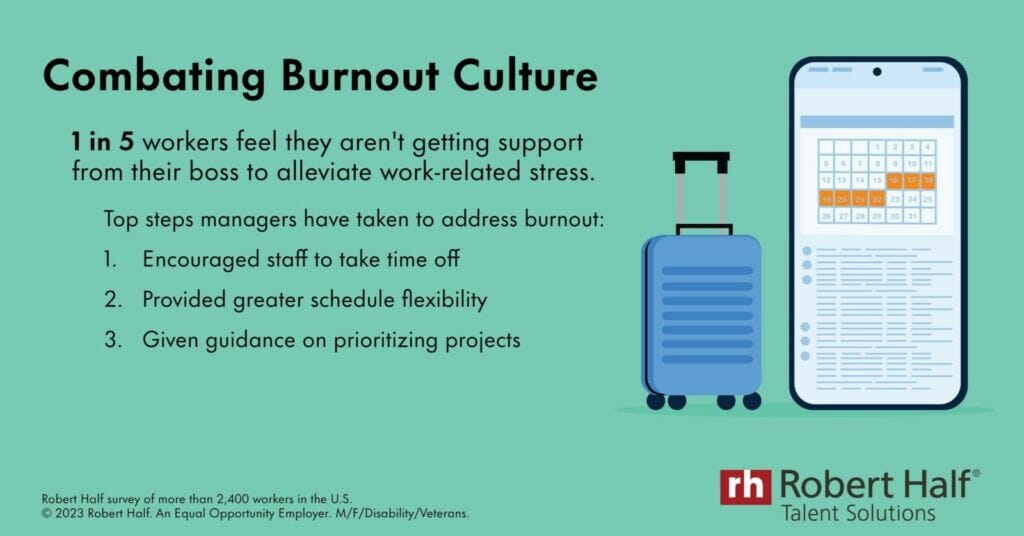Burnout is a problem that just won’t go away, new research from talent solutions and business consulting firm Robert Half shows. In a survey of more than 2,400 professionals in the U.S., 38% of respondents reported being more burned out now than a year ago. Workers said the top factors contributing to burnout today are:
- Heavy workloads (56%)
- Lack of communication and support from management (32%)
- Insufficient tools and resources to perform effectively (27%)
Those with the highest burnout levels include:
- Millennials (27- to-42-year-olds)
- Working parents
- Employees who have been with their company for 2-4 years
View infographics of the research highlights.

“Despite employers’ efforts to better support employee well-being, burnout is an issue that needs ongoing attention,” said Paul McDonald, senior executive director of Robert Half. “Compounding the matter, businesses are moving forward with an influx of new projects, putting more pressure on current staff who may already be stretched thin.”
Combating Burnout Culture
The research shows more must be done to promote a healthy workplace culture. Nearly four in 10 professionals (37%) feel uneasy about expressing feelings of burnout with their boss. Further, one in five workers said their manager hasn’t taken steps to help them alleviate work-related stress. Those who are receiving support have been:
- Encouraged to take time off (26%)
- Provided greater schedule flexibility (24%)
- Given guidance on prioritizing projects (22%)
Foregoing Summer Fun
Work breaks are essential for restoring energy and focus and preventing burnout. While 28% of professionals plan to use more vacation days this summer compared to last summer, an equal percentage (28%) feel they can’t take time off, either because they have too much work or worry it will impact their job security. Another 21% of employees will be checking in with work frequently when on vacation.
McDonald noted, “Refreshed and recharged workers are happier, more productive and less likely to burn out. To discourage hustle culture and find better balance, managers must set clear and realistic expectations, and workers need to prioritize self-care and protect their personal time. Contract professionals can step in to help ensure projects stay on track and workloads remain manageable.”
Visit the Robert Half blog for tips on supporting employee mental health and preventing work burnout.




